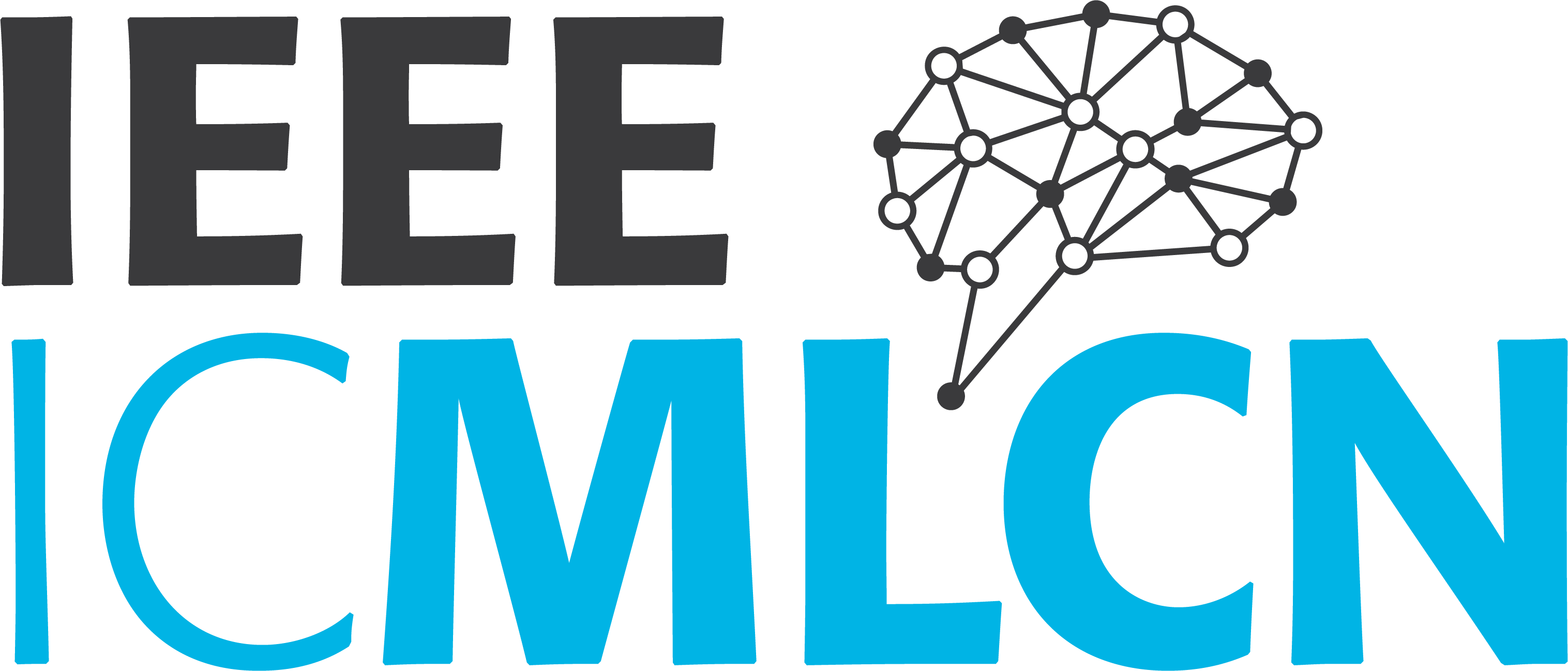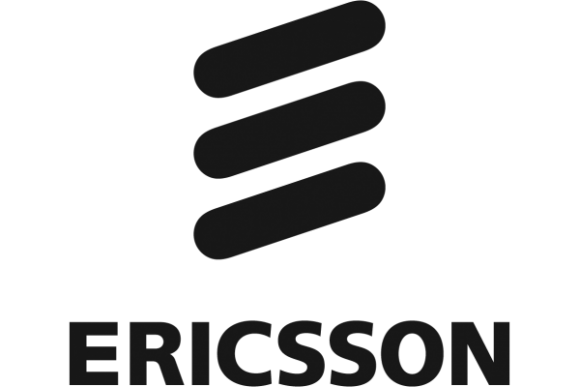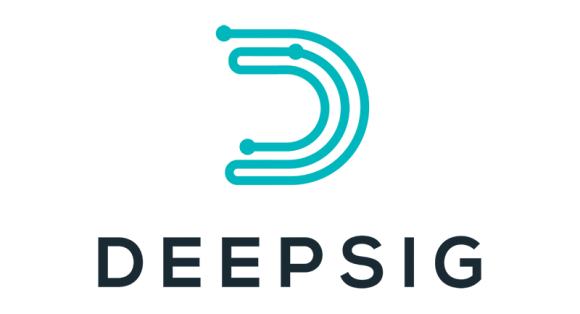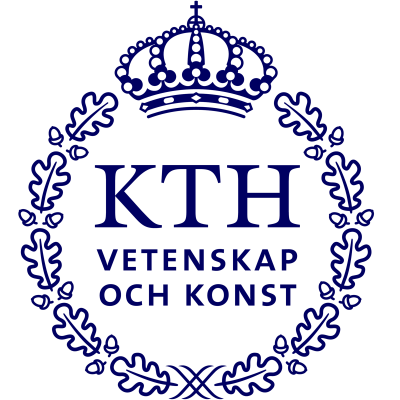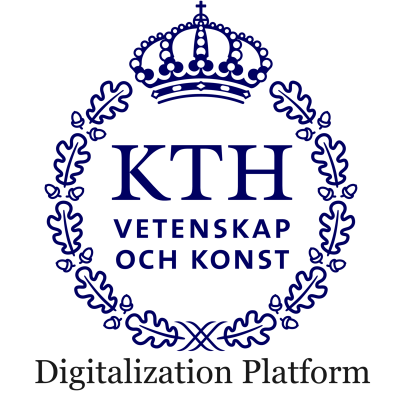Monday, May 6
Panel 1: On the role of AI/ML within the 6G air interface
Moderator: Adrian Garcia-Rodriguez, Ericsson Research
Time: 14:30-15:30
Location: Room F2
Panelists:
- Jakob Hoydis, NVIDIA
- Dani Korpi, Nokia Bell Labs
- Roy Timo, Ericsson Research
Abtract: The integration of machine learning (ML) in the wireless air interface has sparked the interest of academic and industrial worlds alike. The research community has gone a long way from the pioneering works demonstrating how ML-based designs could perform communication tasks in theoretical setups. Indeed, wireless communications systems integrating ML functionalities have been shown to match or even outperform expert-based designs developed over decades in advanced simulated setups and early hardware-based proof of concept designs. These efforts have culminated in the definition of the study item of artificial intelligence (AI)/ML for air interface in 3GPP Release 18 and a subsequent specification work item in 3GPP Release 19 (5G Advanced). Considering this background and the public positions of key industry players, it feels natural to assume that AI/ML will play a significant role in 6G communications systems. In this panel, we will bring together internationally-renowned experts to discuss the integration of AI/ML functionalities within the 6G air interface.
Biographies:
Adrian Garcia-Rodriguez is a team leader at Ericsson Research, where he investigates on artificial intelligence and machine learning (AI/ML) for the 6G air interface. For his work, he was recognized as a Key Ericsson Contributor for having the potential to drive the long-term strategic priorities in 2022. Adrian is a co-inventor of 50+ filed patent families, for which he received the Nokia Bell Labs Ireland Certificate of Outstanding Achievement for co-authoring the highest number of filed patents in 2019 and the Top 10 inventor in Nokia Ireland for patent filings in 2018. He is a recipient of the 2021 IEEE ComSoc Outstanding Young Researcher Award for EMEA, Best Paper Award in PIMRC’19 for his work on “UAV-to-UAV cellular communications”, and received the Most Attended Industry Program Award at IEEE GLOBECOM 2017 for delivering the industrial seminar “Drone Base Stations: Opportunities and Challenges Towards a Truly “Wireless” Wireless Network”. Adrian has extensive experience managing events at the IEEE ComSoc flagship conferences, where he has organized 9 workshops, and delivered 20 between keynotes, tutorials, and industrial seminars.
Jakob Hoydis is a Principal Research Scientist at NVIDIA working on the intersection of machine learning and wireless communications. He is a recipient of the 2019 VTG IDE Johann-Philipp-Reis Prize, the 2019 IEEE SEE Glavieux Prize, the 2018 IEEE Marconi Prize Paper Award, the 2015 IEEE Leonard G. Abraham Prize, the IEEE WCNC 2014 Best Paper Award, the 2013 VDE ITG Förderpreis Award, and the 2012 Publication Prize of the Supéléc Foundation. He has received the 2018 Nokia AI Innovation Award, as well as the 2018 and 2019 Nokia France Top Inventor Awards. He is a co-author of the textbook “Massive MIMO Networks: Spectral, Energy, and Hardware Efficiency” (2017). He is a 2023 Distinguished Industry Speaker of the IEEE Signal Processing Society.
Dani Korpi is currently a Senior Specialist at Nokia Bell Labs, Espoo, Finland. He received the M.Sc. and D.Sc. degrees (Hons.) in communications engineering and electrical engineering from the Tampere University of Technology (TUT), Finland, in 2014 and 2017, respectively. His Ph.D. thesis received the Best Dissertation of the Year Award from TUT and the Finnish Technical Sectors Award for the best doctoral dissertation, in 2017. His current research interest includes applying machine learning to wireless communications, especially on the physical layer. In particular, he is working on building a native foundation for machine learning in 6G radio networks.
Roy Timo is the Head of the AI and Digital Twins Lab at Ericsson, a team specializing in AI, software development, cloud computing, wireless communications, and information theory. The lab spearheads Ericsson's digital twins project, drives cutting-edge AI research for Ericsson, and develops hyper-scale cloud infrastructure to foster innovation and development. Before taking on this role, Roy led Ericsson's 3GPP AI for air interface standardization team. Ericsson’s AI standardization team collaborates with industry peers to evaluate and standardize AI features for the 5G Advanced air interface. Prior to joining Ericsson, he served as an Alexander Von Humboldt researcher at the Technical University of Munich and as a Research Fellow at the University of South Australia. Roy holds a Ph.D. in Engineering from the Australian National University.
Panel 2: The Interplay of Large Generative Models and Future Networks
Moderator: Dr. Antonio De Domenico, Huawei Technologies
Time: 14:30-15:30
Location: Update: F3 (next to F2)
Panelists:
- Dr. Lina Bariah, Khalifa University of Science and Technology, UAE
- Dr. Andreas Maeder, Nokia Standards, Germany
- Dr. Sihem Cherrared, Orange Labs Networks, France
Abstract:
The integration of artificial intelligence (AI) into wireless networks has undergone extensive study over the past decade, resulting in significant achievements in both academia and industry. Recently, Large Language Models (LLMs) have ushered in a new era marked by sophisticated text generation, advanced comprehension, and dynamic interactions. The evolutionary path of LLMs traces back to the early stages of machine learning and natural language processing, marked by the emergence of statistical language models and the gradual evolution of neural networks. However, the true transformation occurred through breakthroughs in deep learning, particularly with the rise of transformer architectures. These innovations paved the way for the development of language models with an unprecedented ability to process and generate extensive volumes of comprehensive textual content.
Beyond LLMs, Large Generative Models (LGMs) offer new perspectives in terms of generalizability, adaptability, and automation, promising a transformative overhaul in wireless network design, deployment, and operations. Despite their broad applications across various research and business domains, the deployment of LGMs in the telecommunications industry appears somewhat limited. This gap has attracted the attention of both research and industry communities, focusing on exploring the potential applications of LGMs.
It is essential to investigate how to integrate LGMs into wireless networks, from handsets to network functions, and establish foundational frameworks that will facilitate the realization of AI-native networks. The fusion of 6G with LGMs is anticipated to set a novel intelligence benchmark for next-generation communication networks, further catalyzing socio-economic and technological innovations.
This panel discussion aims to establish a platform for research on the integration of LGMs in the telecom domain, overcoming existing technological barriers and ushering in a transformative leap in future communication technologies. During this discussion, top experts from academia and industry, including vendors and mobile network operators, will shed light on unprecedented challenges and novel solutions enabling the interplay between LGMs and future networks.
Biographies:
Dr. Antonio De Domenico received the M.Sc. degree in telecommunication engineering from the University of Rome La Sapienza in 2008 and the Ph.D. degree in telecommunication engineering from the University of Grenoble in 2012. From 2012 to 2019, he was a Research Engineer with CEA LETI MINATEC, Grenoble, France. In 2018 and 2019 he was a Visiting Researcher with the University of Toronto, Canada and a Visiting Researcher with the Chinese Academy of Sciences, China, respectively. Since 2020, he has been a Senior Researcher with Huawei Technologies, Paris Research Center, France. His main research interests are in mobile network modelling and optimisation, both theoretical, data-driven, and simulation-based as well as on the integration of AI in the Telecom domain. Antonio was recognised as CEA LETI Senior Expert in 2018. He won the Huawei Future Star Award and the Huawei GTS President Award in 2021. He is the main inventor or a co-inventor of 25 patents and he has published more than 80 research manuscripts on a variety of topics related to heterogeneous wireless networks, AI for network, and green communications. He is currently an Editor of Wireless Communications and Mobile Computing and a project lead at Next Generation Mobile Networks (NGMN) Alliance on Network Energy Efficiency.
Dr. Lina Bariah received the M.Sc. and Ph.D. degrees in communications engineering from Khalifa University, Abu Dhabi, UAE, in 2015 and 2018, respectively. She was a Visiting Researcher with the Department of Systems and Computer Engineering, Carleton University, Ottawa, ON, Canada, in 2019, and an affiliate research fellow, James Watt School of Engineering, University of Glasgow, UK. She was a Senior Researcher at the technology Innovation institute. She is currently a Lead AI Scientist at Open Innovation AI, an Adjunct Professor at Khalifa University, and an Adjunct Research Professor, Western University, Canada. Dr. Bariah is a senior member of the IEEE, IEEE Communications Society, IEEE Vehicular Technology Society, and IEEE Women in Engineering. She is the founder and lead of Women in Machine Learning and Data Science (WiMLDS)-Abu Dhabi Chapter. She was recently listed among the100 Brilliant and Inspiring Women in 6G", by Women in 6G organization. She was an Associate Editor for the IEEE Communication Letters, an Associate Editor for the IEEE Open Journal of the Communications Society, and an Area Editor for Physical Communication (Elsevier). She is a Guest Editor in IEEE Communication Magazine, IEEE Network Magazine, and IEEE Open Journal of Vehicular Technology.
Dr. Andreas Maeder is the head of AI/ML at Nokia Standards, where he is responsible for the AI/ML standardization research strategy for mobile networks. Previously he was the technical manager of Nokia’s overall 3GPP standardization program, including 5G. Before joining Nokia, he was a Senior Researcher with NEC Laboratories Europe, Heidelberg, Germany, working on 5G mobile networks, including RAN and core network virtualization, energy efficiency, and the convergence of IT and telecommunication technologies. With over 20 years of experience in the telco industry and academia, he is fascinated by the transformative powers of AI/ML that drive the industry toward data-driven mobile networks. Andreas is the author of numerous standard contributions, in 3GPP RAN and system architecture, as well as to IEEE 802.16 conference papers, journal articles, book chapters, patents, and patent applications.
Dr. Sihem Cherrared received a master’s degree in networks and distributed systems from the University of Science and Technology, Algeria, in 2015. She defended her PhD degree in 2020 at the University of Rennes 1 France, in INRIA and ORANGE Labs, on the fault management of programmable multitenant networks. She held an R&D engineer position at Smile, Paris region, before joining Orange Innovation in 2022. She is currently working as a senior R&D engineer on network management and automation, including those main topics: fault management, network functions virtualization, model-based machine learning, and root cause analysis.
Tuesday, May 7
Panel 3: AI-native 6G radio interfaces: what can hardware acceleration really bring about?
Moderator: Carles Antón-Haro, Centre Tecnologic de Telecomunicacions de Catalunya (CTTC), Spain
Time: 14:30-15:30
Location: Room F2
Panelists:
- Dr. Bo Goransson, Ericsson, Sweden
- Prof. Deniz Gündüz, Imperial College, London, UK
- Dr. Tim O'Shea, DeepSig, USA
- Dr. Zoran Zivkovic, Intel, Netherlands
Abstract: In recent years, we have witnessed a progressive introduction of sophisticated technologies (e.g., Terahertz communications, ultra-massive and holographic radio, scalable cell-free MIMO networking) in the radio interface. This provides fundamental performance advantages and enables futuristic use cases. However, their introduction also entails that complex management solutions are needed to meet the stringent requirements associated with those services. Such complexity can only be addressed by introducing increasing levels of network automation which can be largely facilitated by the adoption of Artificial Intelligence/Machine Learning (AI/ML).
While 5G-Advanced addresses AI/ML-based improvement in selected functionalities, 6G wireless networks are expected to natively incorporate AI/ML in the air interface design. While AI/ML provides great opportunities for 6G, it also faces a number of challenges. Notably, AI/ML model training and inference, in particular for functionalities in the radio access networks, may be computationally intensive and costly in terms of energy consumption. Infrastructure for dataset management and the life cycle of AI/ML models, including continual data collection or generation of synthetic datasets to complement/expand real-world ones, monitoring/re-training the models, may also incur computational and engineering complexity. This holds in particular when AI/ML models must be dynamically optimized for varying locations, network configurations, traffic conditions, and/or radio propagation conditions.
This, on one hand, calls for a clear identification of algorithmic bottlenecks in AI/ML implementations of the radio interface. Clearly, this must come with the development of complexity reduction strategies based on e.g., online (continuous) learning, model transfer/adaptation via e.g., transfer learning, model quantization, or distributed processing via federated learning, to name a few. On the other hand, the development and widespread adoption of powerful yet energy-efficient hardware acceleration platforms (e.g., FPGAs, FPGA-based SoCs, GPUs) is also of utmost importance. This holds in particular for real-time radio functions where generic-purpose processors may not suffice (e.g., the energy footprint of the required computing infrastructure might not be sustainable or the deterministic response time could not be guaranteed). All the above has a number of economic and political implications since both the US and the EU have recognized microelectronics as one of the pillars of technological sovereignty. Specifically, the US has launched the “Chips and Science Act” aiming at securing US industrial lead and critical supply chains, whilst the EU adopted last July the “Chip Act”, aiming at developing EU industrial capabilities by injecting at least € 43 billion of private and public investments and also of securing the supply chains. This includes substantial funding for R&D in the microelectronics area which, interestingly, come hand-in-hand with other notable R&D investments for the development of AI-native 6G systems under the umbrella of the SNS Joint Undertaking.
This panel session lies at the cross-road of AI/ML algorithmic and hardware acceleration developments. It will count with a number of senior researchers from the industry and academia sharing their views, lessons learnt and challenges to be addressed in the coming years in this exciting race towards the definition of future AI-native 6G systems.
Biographies:
Dr. Carles Antón-Haro, Director EU Programmes & Industry Contracts, Research Director, CTTC (Spain)
Carles is a Director of European Programs & Industrial Contracts, and a Research Director (R4, Advanced Research Accreditation AQU, Senior Member IEEE). He has promoted or coordinated over 80 R&D international projects and has been involved in selected projects as principal investigator (+10) and researcher. He is a Governing Board member of the 6G Industry Association, the 6G SNS Joint Undertaking and a Steering Board member of Networld Europe. His research interests are in the field of signal processing for communications, including machine/deep learning for 6G. He has published over 140 technical papers in journals, books and int’l conferences (2 Best Paper Awards). He has supervised 6 PhD Theses. He is a member of the Scientific Advisory Board of the Internet.
Dr. Bo Goransson, Senior expert multi-antenna systems, Ericsson (Sweden)
Adj. Professor multi antenna systems, KTH (Sweden)
Bo Göransson (Member, IEEE) received the M.Sc. degree in applied physics and electrical engineering from Linköping University, Sweden, in 1991, and the Ph.D. degree in array signal processing from the KTH Royal Institute of Technology, Stockholm, Sweden, in 1997. In 1998, he joined Ericsson, Stockholm, where he has been working with research and standardization of 3G, 4G, and 5G physical layer with special interest for MIMO and beamforming technologies. He is currently a Senior Expert in multi-antenna systems and architectures with Ericsson, and an Adjunct Professor with the KTH Royal Institute of Technology. He holds more than 150 patents (issued and pending). He was the recipient of the Ericsson Inventor of the Year Award in 2012.
Prof. Deniz Gündüz, Professor, Imperial College London (UK)
Deniz Gündüz received his Ph.D. degree in electrical engineering from NYU Tandon School of Engineering in 2007. Currently, he is a Professor of Information Processing in the Electrical and Electronic Engineering Department at Imperial College London, UK, where he also serves as the deputy head of the Intelligent Systems and Networks Group. Dr. Gündüz is a Fellow of the IEEE. He serves as an area editor for the IEEE Transactions on Information Theory and IEEE Transactions on Communications. He is the recipient of the IEEE Communications Society - Communication Theory Technical Committee (CTTC) Early Achievement Award in 2017, Starting (2016) and Consolidator (2022) and Proof-of-Concept (2023) Grants of the European Research Council (ERC), and has co-authored several award-winning papers, including the IEEE Communications Society - Young Author Best Paper Award (2022), and IEEE International Conference on Communications Best Paper Award (2023). He received the Imperial College London - President's Award for Excellence in Research Supervision in 2023.
Dr. Tim O'Shea, CTO DeepSig, Research Assistant Professor Virginia Tech (VA, USA)
Tim is the CTO and Co-Founder of DeepSig and Research Assistant Professor at Virginia Tech in Arlington, VA. Tim’s focus is on rapidly transitioning machine learning communications systems to industry where they can impact 5G OpenRAN, 6G RAN, non-standards-based comms, and spectrum sensing applications and performance dramatically. Previously, he helped launch wireless startups Hawkeye 360 and Federated Wireless. Authored over 100 academic papers and patents and worked to support a number of initiatives including within IEEE ComSoc, IEEE MLC ETI, IEEE TWC, IEEE TCCN, Next-G Alliance, GNU Radio, and OpenRAN Alliance. He has served on boards and panels for NSF, DARPA, IARPA, and others.
Zoran Zivkovic, Principal Engineer/System Architect, Intel, Netherlands
Distinguished Researcher, Technical University of Eindhoven, Netherlands
Zoran Zivkovic works as a system architect for NXP and Intel for more than 15 years. His primary interest is hardware and algorithm/software co-design across various application fields. In the recent years, he worked on programmable solutions for physical layer and radio processing. He has authored more than 100 academic papers and patents with more than 8500 citations.
Panel 4: Navigating the Future: AI-Driven Zero Touch Service Management in B5G/6G Networks
Moderator: Engin Zeydan, Centre Tecnologic de Telecomunicacions de Catalunya (CTTC), Spain
Time: 14:30-15:30
Location: KTH Innovation
Panelists:
- Peter Öhlén, Ericsson, Sweden
- Sihem Cherrared, Orange, France
- Lanfranco Zanzi, NEC Europe
Abstract: The goal of the industrial panel is to explore and discuss the transformative potential of artificial intelligence (AI) in the context of 6G networks, specifically aiming to understand how AI-driven Zero Touch Service Management can revolutionize network management and orchestration. By bringing together experts from various fields, the panel seeks to address the challenges, advancements, and strategies related to the integration of AI in achieving Zero Touch Service Management within the dynamic landscape of 6G networks. The objective is to foster collaboration, share insights, and accelerate the development of standardized approaches and best practices for deploying AI in network management, paving the way for efficient, secure, and innovative 6G connectivity.
Biographies:
Engin Zeydan received his PhD degree in February 2011 from the Department of Electrical and Computer Engineering at Stevens Institute of Technology, Hoboken, NJ, USA. He is currently a senior researcher in the Services as Networks (SaS) Research Unit in CTTC in Barcelona, Spain. He was the Project Coordinator of the European H2020 5GPP MonB5G project (2021-2023). Dr. Engin Zeydan has many years of experience as a researcher in EU Framework Programmes at technical and administrative levels in both industry and research organizations and has been involved in several projects including FP7 STREPs, Celtic, ITEA and H2020 as Technical Lead and WP Lead. His research activities include outstanding publications (more than 120 papers in leading conferences and journals and 10 national patents) and successful participation in research-funded projects mainly focused on telecommunications and data science/engineering.
Peter Öhlén is a principal researcher at Ericsson whose work centers around network and service automation, with a particular focus on how AI, intents and data-driven technologies can contribute to realizing the 6G vision. He joined Ericsson in 2005 and holds a Ph.D. in photonics from Royal Institute of Technology in Stockholm, Sweden.
Sihem Cherrared received her PhD degree in 2020 at the University of Rennes 1 France, in INRIA and ORANGE Labs, on the fault management of programmable multitenant networks. She held an R&D engineer position at Smile, Paris region, before joining Orange Innovation in 2022. She is currently working as a senior R&D engineer on network management and automation. Since 2020, she has been involved in multiple European and national projects. Her research interests include AI for network automation, optimisation and management, network virtualisation and orchestration.
Lanfranco Zanzi received his Ph.D. degree from the Technical University of Kaiserslautern (Germany) in 2022. He currently works as senior research scientist in the 6GN group at NEC Laboratories Europe in Heidelberg. Since 2016, he has been involved in several European H2020 and SNS JU projects at both technical and administrative levels, coordinating the related R&D activities. His research interests include network virtualization, machine learning, cloud robotics, and their applicability to 5G and 6G mobile networks.
